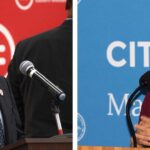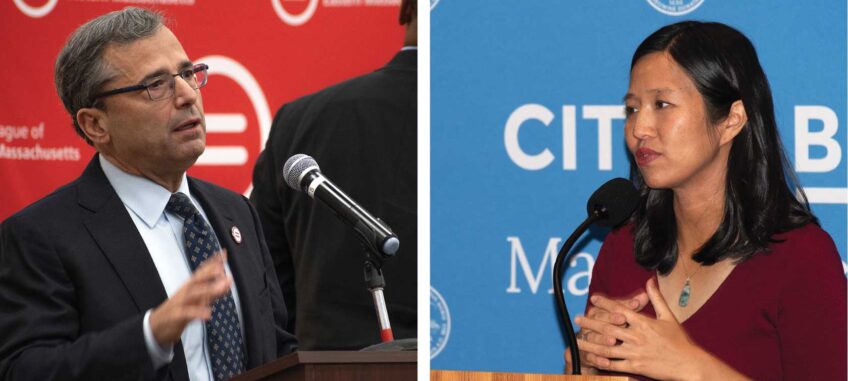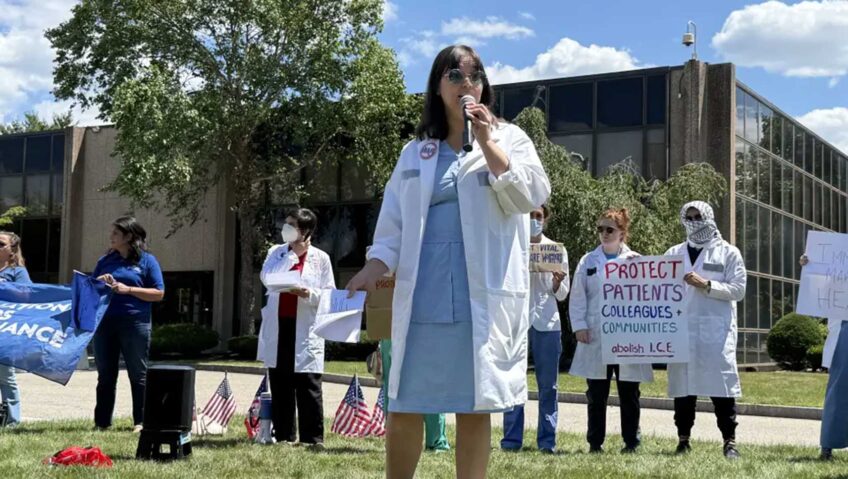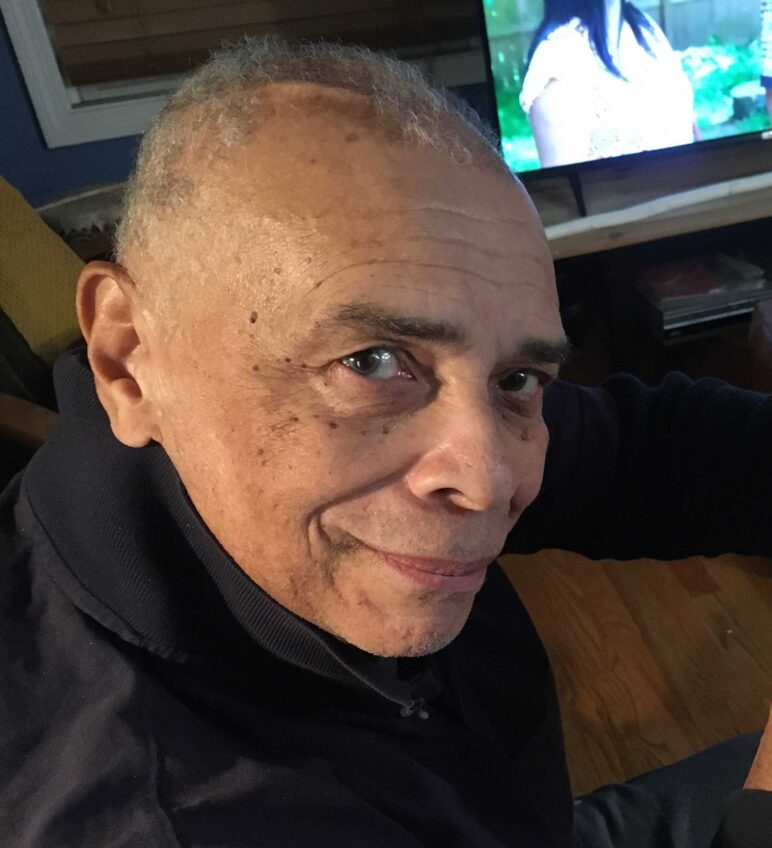Schools facing bus driver shortage
Vaccinations, COVID fears feed national shortage
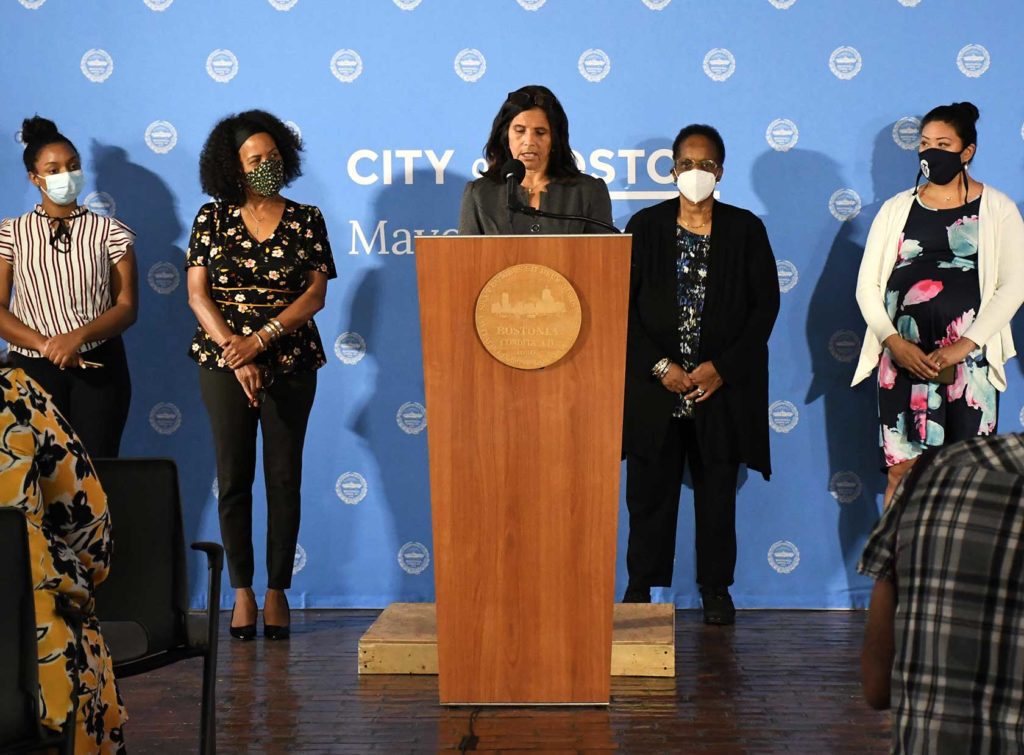
Boston Public Schools (BPS) Superintendent Brenda Cassellius announced in a press conference at City Hall Thursday that the district is facing staffing shortages ahead of the start of the 2021-22 school year.
Cassellius said the district is still looking to fill up to 60 bus driver positions, as well as bus monitor roles. She also described 150 open positions on the district’s food and nutrition services team, including managers and cooks.
School for first-graders through high school seniors begins Sept. 9. Pre-K and kindergarten students return Sept. 13.
Cassellius cited many recent retirements in the district as well as a nationwide shortage in bus drivers in reference to the local shortage.
According to the results of a survey released earlier this summer by School Bus Fleet, a media group focused on student transportation, only 5% of school bus contractors surveyed said they were experiencing no shortage of drivers; nearly half of the respondents said their shortage was severe — 11% to 15% short — or desperate — at least 16% short.
At the conference, Cassellius said BPS currently has 656 of the 700 to 720 drivers they aim to hire regularly. By the standards in the survey, the BPS driver shortage would be moderate — 6% to 10% short.
“My team is in the process of determining the potential impact of these challenges for our students and exploring every alternative and all possible solutions,” Cassellius said.
She said the district anticipates some drivers are not coming back to work for BPS because they are caring for family members due to the COVID-19 pandemic or because some might not want the vaccine — which they would be required to receive under the city’s mandate that municipal employees show proof of vaccination or undergo weekly testing.
Acting Mayor Kim Janey said that she had spoken with drivers who want the shot but struggle with access and said the city has been taking steps to bring vaccines to school bus drivers who want them.
“Through my conversations with the bus drivers, there has been an interest in getting more bus drivers vaccinated,” Janey said. “It’s why we’re setting up vaccine clinics in the bus yards, as they have requested, so we will continue to work with them to get their team vaccinated.”
Cassellius said that as the district works on hiring new bus drivers, it is also looking into rerouting and lightening the load. She said BPS sent a message to parents communicating about the shortage and asking if they will decline to use the school bus system, which would allow the district to consolidate some of its routes.
At the conference, Cassellius, Janey and representatives from groups partnering with the district — such as CIC Health, which runs BPS’s COVID-19 testing, and Boston Medical Center (BMC) — also spoke about the steps schools are taking to protect students as they return to all in-person classes.
Cassellius described the schools’ approach, which focuses on mask use, ventilation and air quality, vaccination of eligible individuals and testing to mitigate the spread of the virus as all students return under guidance from the Massachusetts Department of Elementary and Secondary Education that prohibits remote instruction.
The district has been working with BMC to run vaccine clinics at schools. Cassandra Pierre, an associate hospital epidemiologist at BMC, said the collaboration has led to the administration of 1,319 doses of the vaccine, including in 800 children from the ages of 12 to 19. She said they have held 27 vaccine clinics in conjunction with the district and have 51 more schools currently planning events.
According to data released by the city, 87,575 residents between the ages of 12 and 24 have received at least one dose of the vaccine as of Aug. 24. Of those, 13,726 are between 12 and 15, about 60% of that age group.
It is the lowest vaccination rate of any age group of eligible residents in Boston, but at the Sept. 1 Boston School Committee meeting, Boston Chief of Health and Human Services Marty Martinez said the numbers for that age group are increasing. The vaccination rate of 12- to 15-year-olds has risen about 7% since the start of August, the largest increase in the vaccination rate of any age group in the city.
Catherine De Jesús Martinez, a student at BPS’s Boston International Newcomer Academy, said she encourages her fellow eligible students to get the vaccine.
“To all the students, I really recommend y’all get vaccinated,” De Jesús Martinez said. “It is something safe and it is something that’s going to help us return to the world we once knew.”
Tim Rowe, CEO and founder of CIC Health, the organization that runs COVID-19 testing for the district, expressed optimism about the state of the testing program, describing a streamlined process for BPS staff and students, compared to the spring semester.
“Our purpose here is to make it safe to come back to school and we don’t know, with Delta, how this will unfold, but we do know that since August of last year when we started testing, none of the schools we tested had outbreaks and none of the schools where we tested had to close,” Rowe said.
Pierre said it remains important that Boston maintains good protocols to continue protecting Boston residents, especially school-aged children, many of whom are not old enough to be eligible for the vaccine.
“We know that as the weather gets cooler and people move indoors, we will see an increase in COVID-19 infections in our area, including in children,” Pierre said. “We need to do everything in our power to protect them.”
Janey said that the city should make sure to prioritize safe habits as the school year begins.
“I am urging every family to put masks, testing and vaccines on your back-to-school lists,” she said.

